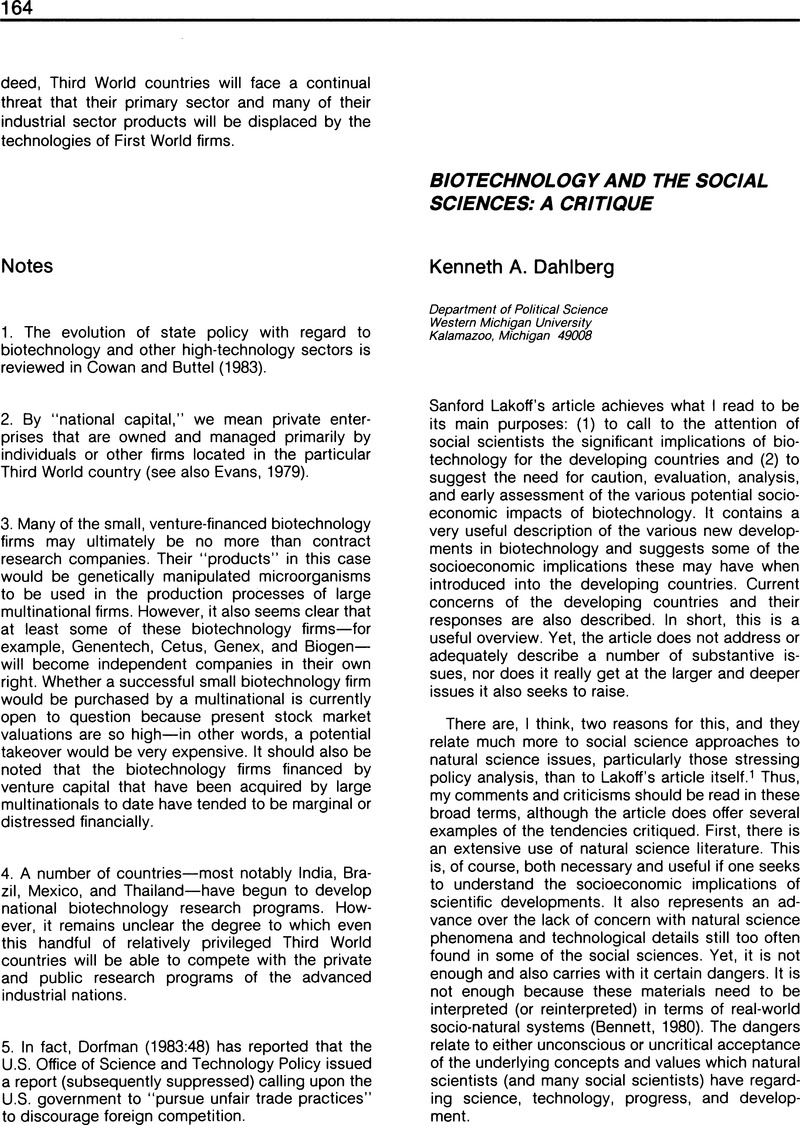Published online by Cambridge University Press: 17 May 2016

1. The discussion here is at a general level and does not seek to describe the various traditions or the important differences between such disciplines as anthropology, geography, sociology, economics, and political science.Google Scholar
2. This is generally true of Marxist as well as non-Marxist approaches in that both accept centralized, functionally specialized, and highly bureaucratic approaches to organizing the work process (as well as other sectors of society). In addition to these institutional patterns, both approaches also accept large-scale and centralized infrastructural and production systems. There are, of course, significant differences and debates between the two regarding the ownership and control of the means of production and the distribution of the wealth, income, and products of industrial society.Google Scholar
3. It would be interesting to know whether and to what degree Lakoff's conceptualization of biotechnology, its implications, and the role of social science might change should he conclude that the limits to growth are a serious worry now.Google Scholar